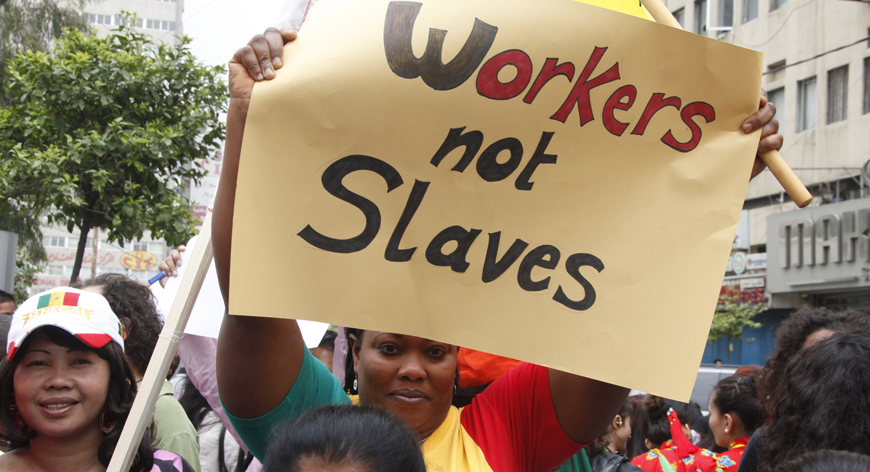How the TPP trades away migrant rights
AFL-CIO | 27 October 2016
How the TPP trades away migrant rights
by Charlie Fanning
International trade and migration are fundamental and interrelated components of globalization that have the potential to improve the lives of working families. For far too long, however, trade and immigration policies have prioritized corporate interests over good jobs and workers’ rights.
A new AFL-CIO report, Trading Away Migrant Rights: How the TPP Would Fuel Displacement and Fail Migrant Workers, released this week on Capitol Hill, explores this relationship and finds that the Trans-Pacific Partnership—a massive trade deal between the United States and 11 other Pacific Rim nations—would repeat and expand economic rules that destabilize communities, perpetuate low wages and undermine labor rights—all of which are factors driving forced migration.
Since the implementation of the North American Free Trade Agreement in 1994, corporate-driven free trade agreements have undermined workers’ bargaining power, disrupted rural economies and displaced whole communities in developing countries. Millions of workers have been driven from their homes and families, often undertaking difficult journeys in search of work abroad, where their status is precarious and they are likely to face abuse, exploitation and discrimination.
Today, more people are moving than any time since World War II with more than 65 million people displaced and 244 million migrants total in the world today. Since 2014, the U.S. government has neglected the humanitarian crisis at the southern border and tens of thousands of Central American families fleeing violence, all the while it seeks to double down on its failed trade agenda by pushing forward the TPP.
The TPP would fail migrant workers in three ways: (1) It would displace working people and contribute to forced migration; (2) Its labor provisions would not adequately address ongoing violations of migrants’ human and labor rights; and (3) It would further empower corporate and investor interests, potentially undermining immigration reform and strong labor laws.
The TPP puts all the risk on the most vulnerable, saving its strongest protections for global corporations. The TPP emphasizes investor protections and corporate profit over labor and human rights.
Countries like Mexico, Brunei, Vietnam and Malaysia—persistent violators of labor rights—will continue to oppress workers in order to reduce labor costs and attract foreign investment. This only will worsen the race to the bottom for workers as repressive governments compete to produce the cheapest exports, while neglecting investment in people.
It doesn’t have to be this way. Different trade rules could promote commerce while advancing the working poor and building shared prosperity. Our U.S. government must make a real commitment to address the root causes of forced displacement, including disastrous trade and economic policies, and a lack of decent work.
For more, read the full report: Trading Away Migrant Rights: How the TPP Would Fuel Displacement and Fail Migrant Workers.






